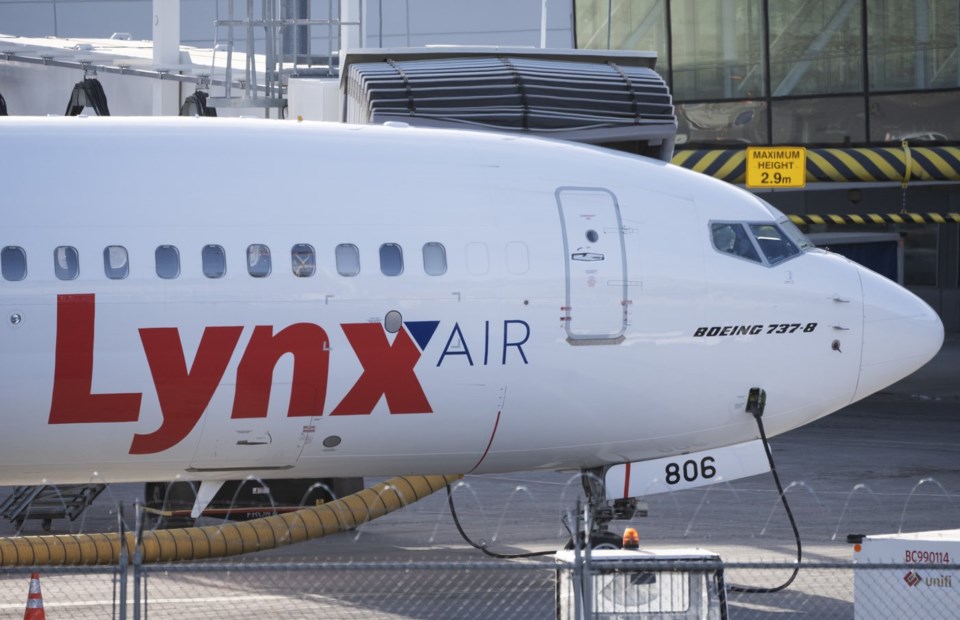Airports are knocking on Lynx Air's cabin door to demand $4.1 million in unpaid fees and debt from the defunct discount carrier, which already faces more than $200 million in claims from creditors.
In court filings late last month, authorities for the Calgary, Vancouver, Edmonton, Halifax and Winnipeg airports asked for an order instructing Lynx to hand over airport improvement fees that the Alberta-based airline held in reserve.
“It would be unjust if Lynx’s creditors were to receive a windfall by gaining access to the (airport improvement fee) funds," the airport authorities said in an application to the Alberta's Court of King's Bench.
The documents show Calgary is owed the most, with the airport claiming to be out of pocket $2 million after the carrier shut down in February.
The unpaid airport improvement fees — amassed from charges of $5 to $38 per passenger, depending on the airport and destination — appear to come on top of the $206 million Lynx owed when it first sought creditor protection nearly four months ago.
Lynx did not appear to dispute the airport authorities' claims, affirming the amounts owed in fees and "other debt," according to a May 31 affidavit from interim chief financial officer Michael Woodward.
The Calgary-based carrier, which launched its first flight in April 2022, said in earlier filings that airport charges, rising costs and "a competitive aviation landscape have proved disastrous" for the airline.
It has said customers seeking refunds for the thousands of cancelled flights should request chargebacks through their credit card providers before Sept. 1, 2025.
Lynx hopes to sell off everything from life-jackets to oxygen masks as it tries to recoup a portion of its losses. In court filings last month, the carrier said it has worked out deals with a pair of aviation companies abroad to sell plane parts and equipment ranging from seats to tires, transponders and even a few food carts and a single garbage bin.
The shutdown marks another step toward airline market consolidation over the past year, raising the likelihood of higher fares and fewer flight options.
Summer airfares for routes to major Canadian cities have risen 14 per cent year-over-year, according to the Flight Centre travel agency.
Swoop disappeared from Canadian skies in October, while WestJet scooped up Sunwing Airlines last year. WestJet plans to fold the low-cost carrier into its mainline operation by April 2025.
Ultra-low-cost carrier Flair Airlines has also confronted financial turbulence over the past 18 months. As of November, it owed the federal government $67.2 million in unpaid taxes related to import duties on the 20 Boeing jets that make up its fleet.
As of Feb. 22, Lynx owed $124.3 million to Indigo Partners, the U.S. private equity firm run by Bill Franke that owns one-quarter of the carrier.
Lynx also owed $47.8 million to various trade creditors and $25.6 million in unpaid taxes to the federal government, according to court documents. It owed a further $4.5 million to Delta Air Lines for aircraft maintenance and warehousing, as well as the $4.1 million to the Toronto and Montreal airports.
This report by The Canadian Press was first published June 14, 2024.
Christopher Reynolds, The Canadian Press




